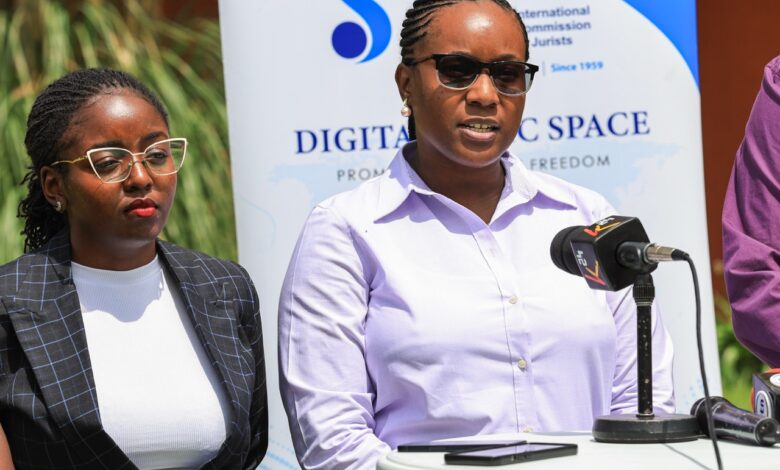
In a landmark digital rights case, seven Kenyan and regional civil society organizations have filed a constitutional petition against state agencies and major telecom providers over repeated internet shutdowns and access restrictions in the country. The High Court, sitting at Milimani, has granted immediate conservatory orders prohibiting any further unlawful disruption of internet and communication services pending full hearing and determination of the case.
Who’s behind the petition?
The organizations behind the suit are:
- International Commission of Jurists – Kenya Section (ICJ Kenya)
- Bloggers Association of Kenya (BAKE)
- Paradigm Initiative (PIN)
- Kenya Union of Journalists (KUJ)
- Katiba Institute
- Law Society of Kenya (LSK)
- Collaboration on International ICT Policy for East and Southern Africa (CIPESA)
These groups are challenging what they describe as unconstitutional disruptions of internet access during major public events, including the #RejectFinanceBill protests and the 2024 Kenya Certificate of Secondary Education (KCSE) exams, during which access to platforms like Telegram was blocked.
The respondents in the case include:
- The Cabinet Secretary for Information, Communications and the Digital Economy
- The Communications Authority of Kenya (CA)
- The Attorney General
- Safaricom PLC
- Airtel Kenya
- Other unnamed agencies operating under multi-agency frameworks
What the court ordered
In a ruling delivered by Justice Bahati Mwamuye, the High Court issued multiple conservatory orders:
- Restraint from Future Disruptions: The court barred the respondents and any affiliated agents or regulated entities from carrying out or permitting any “wholescale shutdown, blockage, denial of access or service” affecting internet services, telephony, social media, or electronic communication platforms.
- Preservation of Evidence: The court ordered all respondents to collate and preserve any documents, correspondences, or directives related to past disruptions, as referenced in the petition.
- Timelines Set for Case Progression:
- Respondents must file appearances and responses by June 10, 2025
- Petitioners may file rejoinders by June 20, 2025
- A court mention is scheduled for June 23, 2025, to confirm compliance and set directions for expedited hearing
The court’s orders come with a penal notice, warning that any disobedience of the order will result in legal consequences.
Grounds for the petition
The suit relies on technical evidence from organizations including Cloudflare, the Internet Outage Detection and Analysis (IODA) project, and the Open Observatory of Network Interference (OONI) to show that deliberate throttling and blocking of internet services occurred.
The petitioners argue these disruptions violate multiple rights guaranteed under the Kenyan Constitution:
- Article 33: Freedom of Expression
- Article 34: Freedom of the Media
- Article 35: Right of Access to Information
Additionally, the groups say these shutdowns violate regional and international obligations under instruments such as the African Charter on Human and Peoples’ Rights and the International Covenant on Civil and Political Rights.
According to Eric Mukoya, Executive Director of ICJ Kenya, “Kenya’s growing use of digital repression undermines not just civil liberties but also democratic participation. The internet is now a core utility for political discourse, education, business, and emergency response.”
Petitioners seek more than just declarations
Beyond seeking a declaration that the shutdowns were unconstitutional, the organizations want judicial mechanisms established to guarantee:
- Transparency in digital governance
- Judicial oversight before any future network disruptions
- Accountability from both regulators and service providers
Kennedy Kachwanya, Chairperson of BAKE, stated, “The outcome of this case will have far-reaching implications for millions of Kenyans who rely on uninterrupted access to the internet for their livelihoods, education, and civic engagement.” He called on civil society, the media, and the international community to rally behind the push for digital rights protections.
Why it matters
This is the first time a coordinated legal challenge of this scale has been mounted against state-driven internet shutdowns in Kenya. If successful, the case could set a precedent in ensuring state actors cannot arbitrarily disrupt digital communication tools, especially without judicial oversight or constitutional justification.





